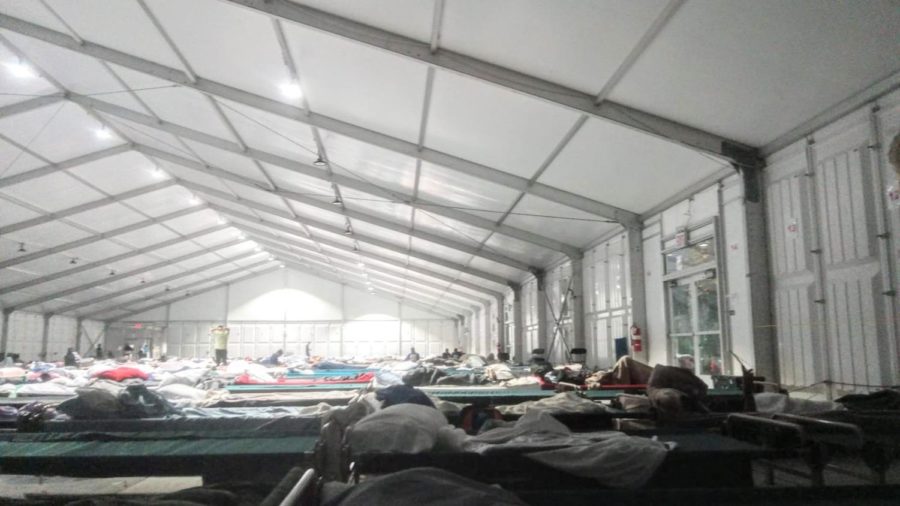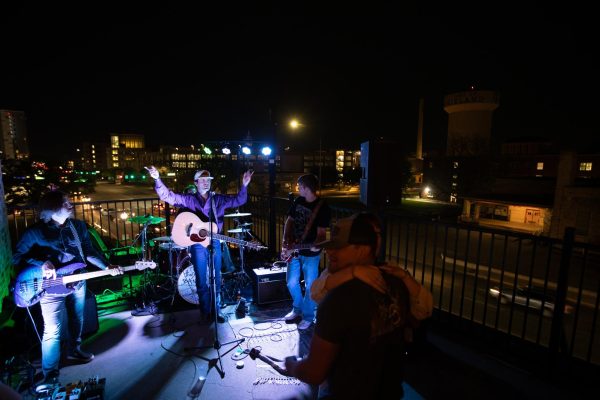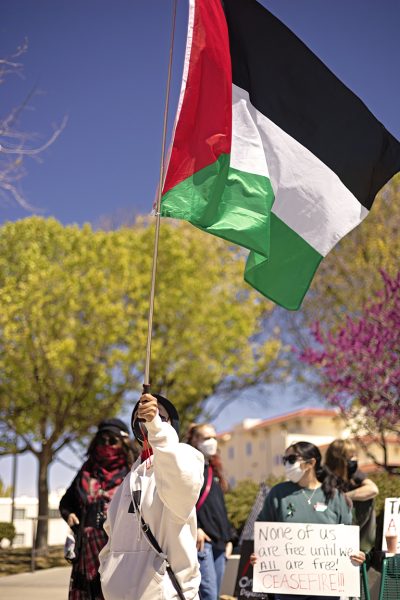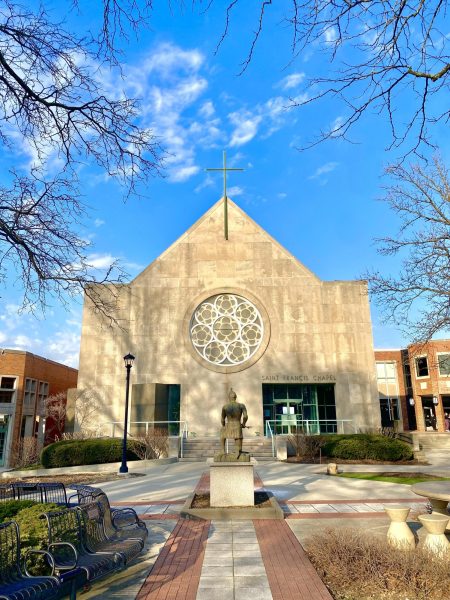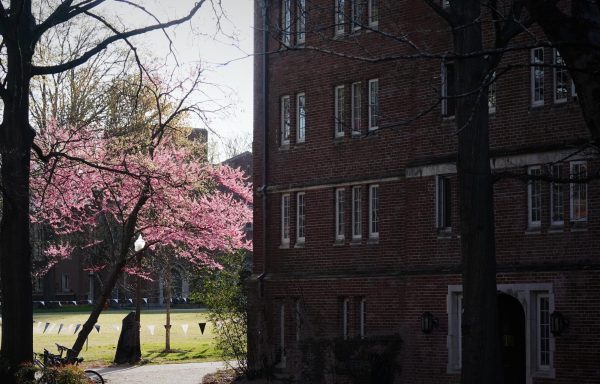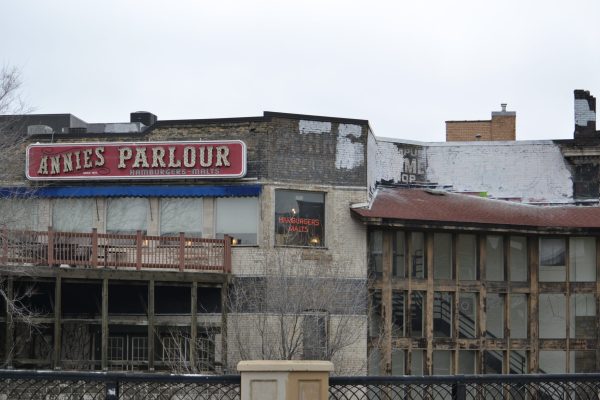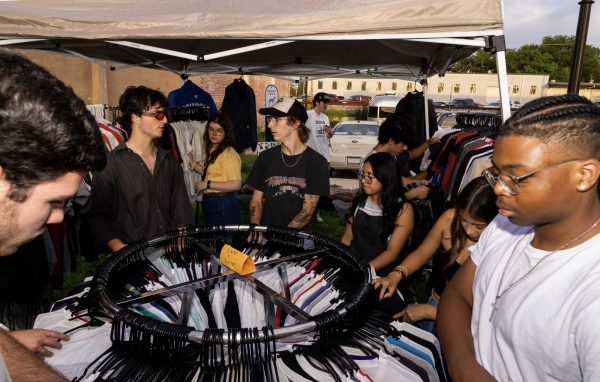Fordham Welcomes Asylum Seekers Into Lincoln Center Area
A new shelter for immigrants at The Watson Hotel sparks a renewed commitment to social justice in the university
COURTESY OF ANGEL
Photo from inside of the Randall’s Island Shelter showing the housing layout provided to migrants.
February 7, 2023
Fordham Lincoln Center’s (FLC) newest neighbors moved in just three blocks south of campus in November 2022. Due to an influx of asylum seekers arriving in buses at New York’s Port Authority Bus Terminal, The Watson Hotel, located on West 57th Street, was converted into a temporary shelter for migrants by the City of New York on Nov. 10, 2022.
The hotel is one of the latest Humanitarian Emergency Response and Relief Centers (HERRC) and opened by the city since Aug. 7, when New York City Mayor Eric Adams declared a state of emergency and directed all relevant New York agencies to address the ongoing humanitarian crisis.
The city’s response was prompted by a higher volume of asylum seekers from nations including Venezuela, Columbia, and Senegal arriving at the southern border of the U.S., affecting the city’s operations as thousands are being bussed by the Texas government to New York City and other sanctuary cities in the country.
The shelter at The Watson Hotel was implemented in November 2022 to replace a controversial “tent city” that was opened on Randall’s Island less than a month prior, on Oct. 20.
New York City has a four-decade- old “Right to Shelter” law that requires the city to provide housing for its unhoused population, including newly arrived immigrants.
Inside the Randall’s Island shelter, there was a communal living space with rows of green cots lined head-to-foot and wall-to-wall. Concerns about the cold weather and lack of access to the rest of the city also fueled criticism of this shelter.
New York City has a four-decade- old “Right to Shelter” law that requires the city to provide housing for its unhoused population, including newly arrived immigrants. Activist groups felt that the conditions the city created for migrants staying on Randall’s Island violated these regulations.
Only three weeks after it was opened, the Adams administration declared that they would shut down the facility and relocate residents of the humanitarian center to The Watson Hotel.
Experiences of a Resident at The Watson Hotel
While the shelter at Randall’s Island was meant to house migrants for only a few days before they were moved to more permanent housing, some of the men who moved in when it first opened stayed there until it was shut down.
One of those men was 28-year-old Angel, who traveled to the U.S. from Venezuela with nine other migrants in October 2022.
Angel, who asked that his last name not be disclosed to protect his identity, said that he left his three children in Venezuela. He added that he does not think he will bring his family to the U.S. because of the laborious immigration system.
“That is a time consuming process,” he said. “I prefer to work here and help them.”
He is currently employed by a car wash and sends the money that he earns from his work to his family in Venezuela. His dream job is to own a food distribution business, which he believes is possible now that because he is in the U.S.
“Thank God I am in the land of opportunity,” he said.
Angel’s journey required him and his friends to cross the Darién Gap, a 60-mile stretch of jungle connecting Colombia and Panama. The trek through the forest is a notoriously deadly journey known as a last resort for migrants attempting to come to the U.S.
Angel is only one of hundreds of immigrants who have moved into The Watson Hotel. According to the New York Post, there is a waiting list for a spot in the hotel as of Jan. 6, which the city claims has 600 rooms to accommodate migrants.
“In this life, you have to risk in order to win,” Angel said.
Now, Angel is navigating life in the concrete jungle. He is currently residing in The Watson Hotel, but he hopes to find a different place to live.
“For now we can only count on the shelters,” he said. “Later I can organize myself and rent a room.”
Angel is only one of hundreds of immigrants who have moved into The Watson Hotel. According to the New York Post, there is a waiting list for a spot in the hotel as of Jan. 6, which the city claims has 600 rooms to accommodate migrants.
On Saturday, Jan. 21, Adams said that there were “nearly 28,000 asylum seekers in our care” and added that the city is overwhelmed by the number of migrants who continue to enter the city.
“The shelter system has already failed our homeless population. How is it supposed to be any different for this group?” Adama Bah, an activist since 2014 for immigrants arriving in New York
Community organizers have expressed dismay at the city’s handling of this housing crisis. Adama Bah, an activist since 2014 for immigrants arriving in New York, criticized the shelters the government provided for those in need of housing.
“The shelter system has already failed our homeless population,” Bah said. “How is it supposed to be any different for this group?”
Instead, Bah coordinated with people living in New York City who are willing to provide living spaces in their own homes. She sought to provide a safe space for marginalized people, including LGBTQ+ individuals, families that would be separated by the city, and victims of abuse, all of whom Bah feels the city has failed to account for in its current system.
Fordham’s Efforts to Aid Asylum Seekers
Before housing asylum seekers became a citywide crisis, Fordham was involved in helping migrants establish a new life. According to the university’s website, from 2016 until the COVID-19 pandemic, Fordham Law School’s Feerick Center Immigrant Justice Project sponsored trips to the southern border. During these trips, students, alumni and other volunteers in the university’s Law School community visited the country’s largest immigrant detention center, offering assistance to detained women with children.
Fordham’s Center for Community Engaged Learning (CCEL) is now in partnership with community organizations, including Team TLC NYC, the Belmont Islamic Center and Part of the Solution, that all work with immigrants.
Julie Gafney, executive director of CCEL, says that the center is willing to work with students to find ways that they can contribute to their community and receive credit for it.
Julie Gafney, executive director of CCEL, says that the center is willing to work with students to find ways that they can contribute to their community and receive credit for it.
“I really recommend seeking out a Community Engaged Learning course or one of our programs,” she said. “We have several fellowship programs through the center where students can do a semester-long or a yearlong project working alongside faculty educators and community educators.”
Gafney says that approximately 100 students have worked with CCEL in the past semester to assist asylum seekers. Fordham students have begun to express their support for the asylum seekers living in the neighborhood.
David Castaneda, Fordham College at Lincoln Center (FCLC) ’23, believes the presence of immigrants is good for the community.
“It is a great thing to have immigrants in New York City since they bring a part of their respective cultures and add beauty and diversity to our city,” Castaneda said. “There is a tremendous value in having immigrants in a community since it is an opportunity to learn more about other cultures, which helps promote inclusivity and open-mindedness.”
Kendall Beitler, FCLC ’25, echoed that sentiment, citing the benefits that stem from welcoming communities that bring with them a diversity of culture, language and experience to the neighborhood.
“I think that Fordham students need to be more involved in the community around campus at Lincoln Center and Rose Hill. A lot of students tend to ignore the problems that are happening right outside their doors.” Kendall Beitler, FCLC ’25
“I think it is very important to have immigrants in New York,” she said. “There is a lot of value in having people from different cultures together in a community.”
Beitler also mentioned that students cannot be isolated from the city in which their university is located.
“I think that Fordham students need to be more involved in the community around campus at Lincoln Center and Rose Hill,” she said. “A lot of students tend to ignore the problems that are happening right outside their doors.”
University President Tania Tetlow, J.D., reaffirmed Fordham’s ongoing commitment to help migrants.
“We need to think about how the Fordham community can help,” Tetlow said. “We were founded in 1841 to serve the immigrants steaming into New York, often with little else than the clothes on their backs and enormous determination.”
This story was originally published on The Observer on January 25, 2023.



























![IN THE SPOTLIGHT: Junior Zalie Mann performs “I Love to Cry at Weddings,” an ensemble piece from the fall musical Sweet Charity, to prospective students during the Fine Arts Showcase on Wednesday, Nov. 8. The showcase is a compilation of performances and demonstrations from each fine arts strand offered at McCallum. This show is put on so that prospective students can see if they are interested in joining an academy or major.
Sweet Charity originally ran the weekends of Sept. 28 and Oct. 8, but made a comeback for the Fine Arts Showcase.
“[Being at the front in the spotlight] is my favorite part of the whole dance, so I was super happy to be on stage performing and smiling at the audience,” Mann said.
Mann performed in both the musical theatre performance and dance excerpt “Ethereal,” a contemporary piece choreographed by the new dance director Terrance Carson, in the showcase. With also being a dance ambassador, Mann got to talk about what MAC dance is, her experience and answer any questions the aspiring arts majors and their parents may have.
Caption by Maya Tackett.](https://bestofsno.com/wp-content/uploads/2024/02/53321803427_47cd17fe70_o-1-1200x800.jpg)
![SPREADING THE JOY: Sophomore Chim Becker poses with sophomores Cozbi Sims and Lou Davidson while manning a table at the Hispanic Heritage treat day during lunch of Sept 28. Becker is a part of the students of color alliance, who put together the activity to raise money for their club.
“It [the stand] was really fun because McCallum has a lot of latino kids,” Becker said. “And I think it was nice that I could share the stuff that I usually just have at home with people who have never tried it before.”
Becker recognizes the importance of celebrating Hispanic heritage at Mac.
“I think its important to celebrate,” Becker said. “Because our culture is awesome and super cool, and everybody should be able to learn about other cultures of the world.”
Caption by JoJo Barnard.](https://bestofsno.com/wp-content/uploads/2024/01/53221601352_4127a81c41_o-1200x675.jpg)




